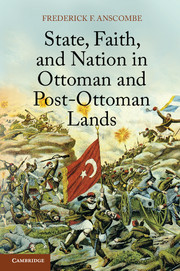Book contents
Bibliography
Published online by Cambridge University Press: 05 June 2014
- Type
- Chapter
- Information
- State, Faith, and Nation in Ottoman and Post-Ottoman Lands , pp. 297 - 314Publisher: Cambridge University PressPrint publication year: 2014



